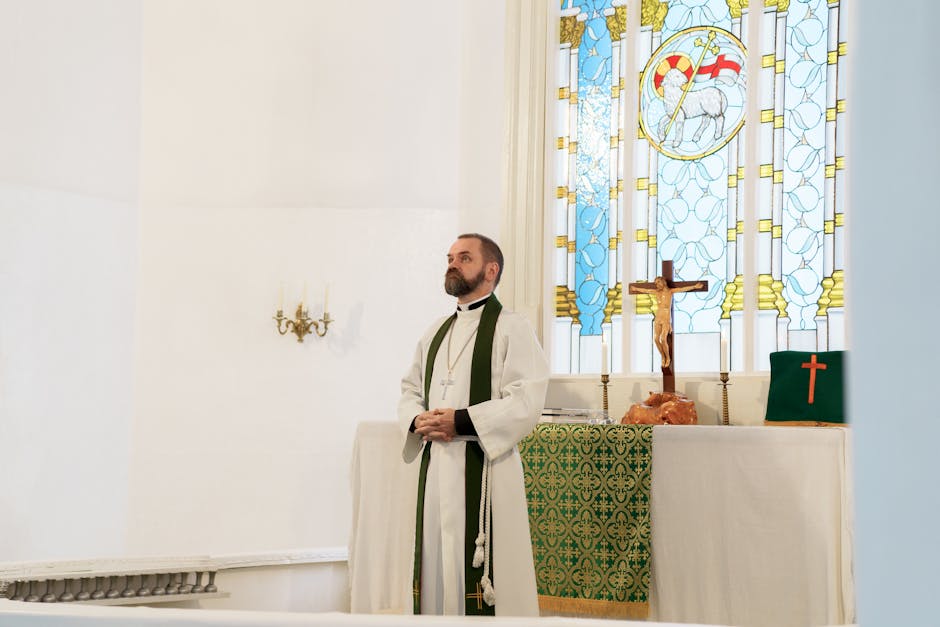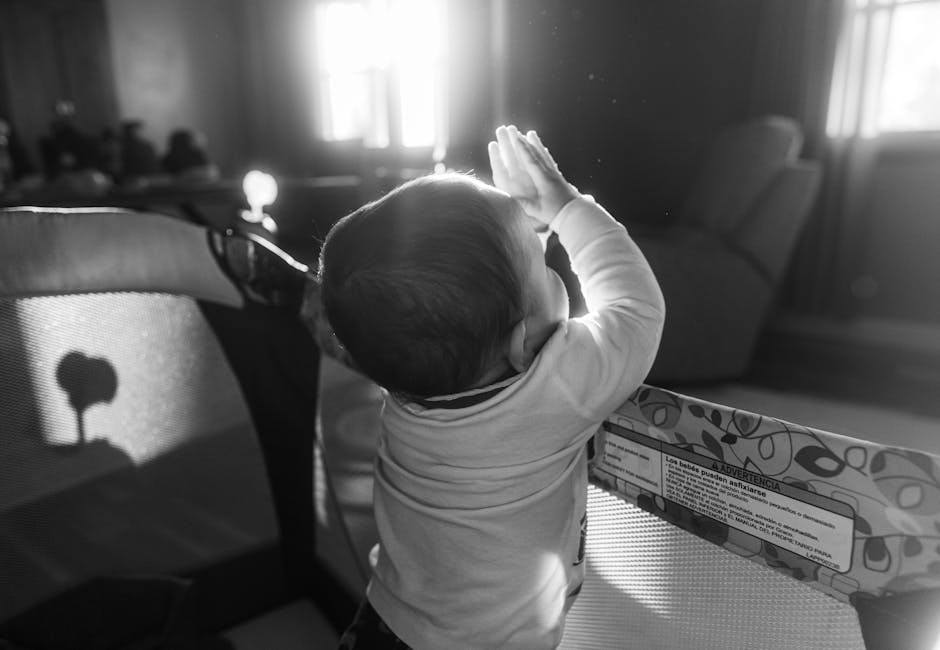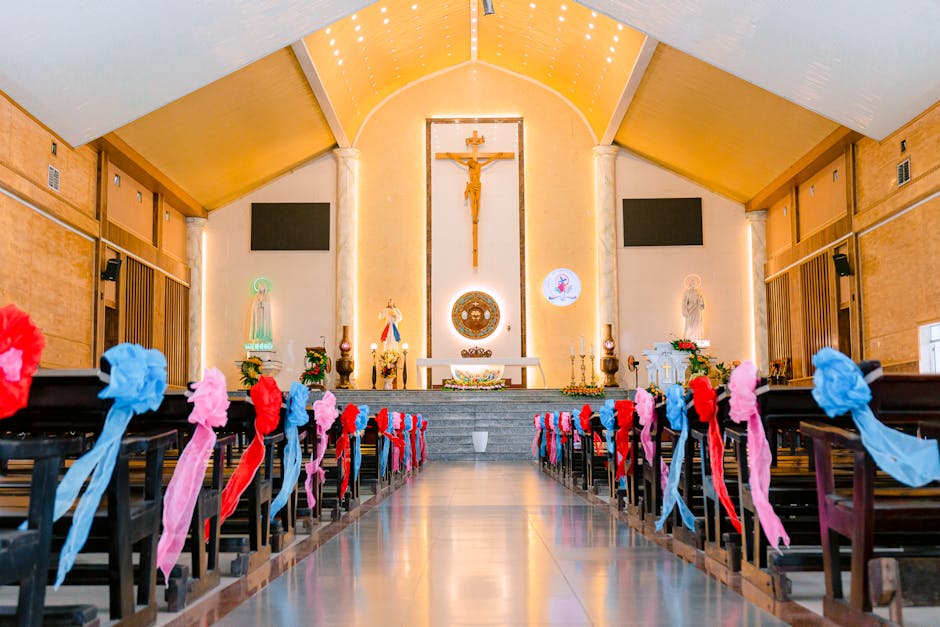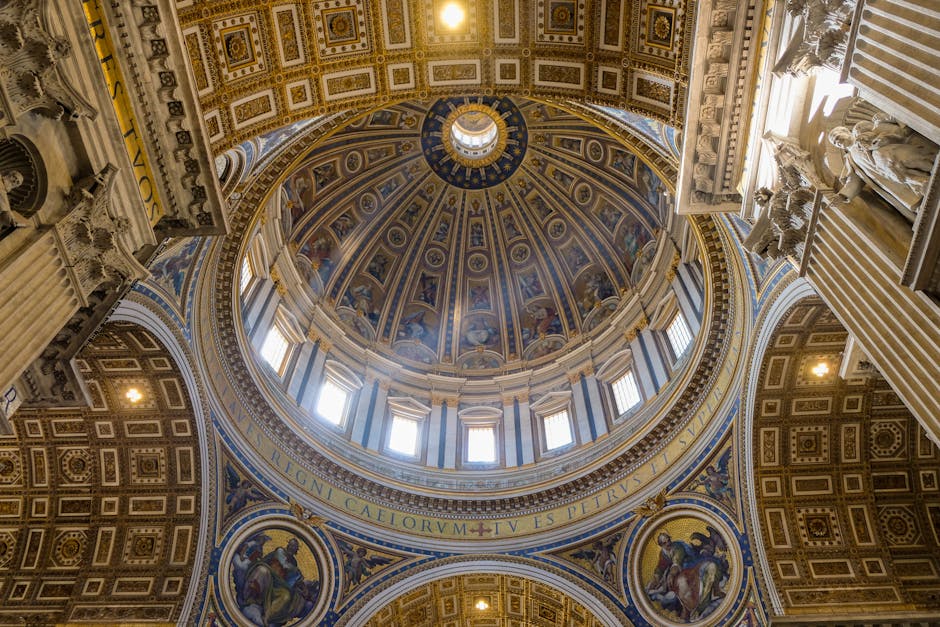The Two Sanctuaries: Forming Souls at the Altar and the Hearth
Authentic Catholic life unfolds in two interconnected sanctuaries: the hallowed space of the parish, where we are nourished by the liturgy, and the sacred space of the home, where faith is first planted and nurtured. Our call as disciples involves tending to both gardens, ensuring that our worship of God overflows into a courageous defense of the family and the common good.
The life of the Church is a rhythm of worship and witness. We gather to be formed by Christ in the Eucharist, and we are sent out to bring His truth and charity into the world. Recently, two distinct areas of focus have highlighted this dynamic reality. The first is a renewed call from the Holy See for a deeper, more intentional liturgical formation in our parishes. The second is the ongoing effort to defend the God-given rights of parents to be the primary guides in their children’s education and moral upbringing.
Though they may seem unrelated, these two movements spring from the same root: a profound concern for the authentic formation of the human person. One addresses how we are shaped by our encounter with God in the mystery of the Mass; the other addresses the protection of the family, the first and most vital school of humanity.
The Liturgy as a Workshop for the Soul
The sacred liturgy is not a historical reenactment or a mere communal gathering; it is the living heart of our faith. Pope Francis, in his apostolic letter Desiderio Desideravi, invites the entire Church to rediscover this truth. He reminds us that the goal of liturgical formation is not to master rubrics but to be led by the hand into the burning core of the Paschal Mystery. The Mass is where we encounter Christ’s ardent desire to draw us to Himself, to feed us with His Body and Blood, and to remake our hearts and minds.
For this encounter to bear fruit, we must learn the language of the liturgy. The rites are rich with symbolism that can easily be missed in a fast-paced world. The space of the church, the passage of liturgical time, the gestures we make, the words we pray, the vestments, the music—all these elements are designed to open our souls to divine action. A parish that takes formation seriously becomes a workshop where the faithful learn to see, hear, and feel the presence of God in these sacred signs. This work moves us beyond being spectators and transforms us into true participants in the work of our redemption.
The liturgical renewal envisioned by the Second Vatican Council is not a matter of aesthetics but of encounter. The aim is to ensure that our worship is deeply grounded in the saving death and resurrection of Jesus Christ. When we understand the profound meaning behind the rites, our participation becomes a source of immense grace, shaping our character and preparing us for mission.
For where two or three are gathered together in my name, there am I in the midst of them.
Mt 18:20
Guarding the First School of Virtue
Just as the parish forms us in corporate worship, the family forms us in personal virtue. The Church has always taught that parents are the first and most important educators of their children. This is not a privilege granted by the state but a fundamental right and solemn duty flowing from the nature of marriage and family life. In this role, parents are irreplaceable guardians of their children’s moral and spiritual development.
This principle is currently being tested in the public square, particularly in a landmark legal case in California examining school district policies. The central question is whether educational institutions can withhold vital information from parents regarding their own children, especially on sensitive matters related to identity and well-being. Such policies risk treating parents as obstacles rather than partners, creating a wedge between the home and the school.
For Catholics, this is more than a legal debate; it is a defense of the family as the essential building block of society. When institutions obscure truth or marginalize the role of parents, they undermine the very foundation of a child’s formation. A just society is one that respects and supports the family’s mission to raise children in an environment of love, truth, and security. Parents should never be made to feel like strangers in their own children’s lives, for they are the ones who know and love their children most intimately.
Train up a child in the way he should go; even when he is old he will not depart from it.
Prov 22:6
Putting Principles into Practice
Engaging these issues requires more than conviction; it demands practical virtues that build up the Body of Christ and serve the common good. Whether in a parish meeting about liturgy or a school board meeting about parental rights, our conduct should be a witness to the truth we profess. The table below offers a framework for applying these virtues in our daily interactions.
| Practice | Where to Apply | Why It Serves the Common Good | First Small Step |
|---|---|---|---|
| Prudent Communication | Parish council meetings, online forums, conversations with school officials. | Builds trust and avoids unnecessary conflict, allowing for constructive dialogue. | Before speaking or posting, ask: Is it true? Is it kind? Is it necessary? |
| Intentional Listening | Parent-teacher conferences, discussions on catechesis, interactions with those who disagree. | Shows respect for the dignity of the other person and helps identify areas of common ground. | In your next important conversation, try to summarize the other person’s view to their satisfaction before you respond. |
| Seeking Shared Understanding | Discussions about liturgical practices, local school policies, workplace ethics. | Moves beyond polarization to focus on shared goals, such as the well-being of children or the spiritual health of the parish. | Ask a clarifying question like, “Can you help me understand your perspective better?” |
| Upholding Truth with Charity | Public testimony, catechesis in the home, everyday conversations. | Protects both justice and mercy, ensuring that clear principles are communicated with genuine compassion. | Pray for the person with whom you disagree before engaging them in a difficult topic. |
| Active Participation | Liturgical ministries, school volunteer opportunities, local civic groups. | Translates faith into action, contributing to the health and vitality of both the Church and society. | Identify one new way to serve in your parish or community this month and sign up. |
A Checklist for Faithful Action
To cultivate these sanctuaries of faith in our own lives, we can commit to small, concrete actions. Here is a simple checklist to help translate these principles into practice:
- Read a section of Desiderio Desideravi with your spouse, a friend, or a parish study group to better understand the Mass.
- Review your local school district’s policies on parental notification and involvement.
- Schedule a conversation with your children’s teachers to build a relationship of trust and partnership.
- Identify one gesture, symbol, or prayer in the Mass that you do not fully understand and research its meaning.
- Examine your own communication habits and resolve to engage in discussions about sensitive topics with greater patience and charity.
- Pray daily for your parish priests and for all parents, teachers, and school administrators.
Let us not love in word or speech but in deed and in truth.
1 Jn 3:18
The mission of the Church is to form saints—men and women who know they are loved by God and who bear witness to that love in every aspect of their lives. This formation is a lifelong journey that begins at the family hearth, is deepened at the parish altar, and is tested in the public square. By dedicating ourselves to a richer understanding of the liturgy and a firmer defense of the family, we participate in God’s own work of renewing the face of the earth. We are called to be people of hope, building a culture of life and a civilization of love through our faithful, courageous, and charitable engagement with the world.




